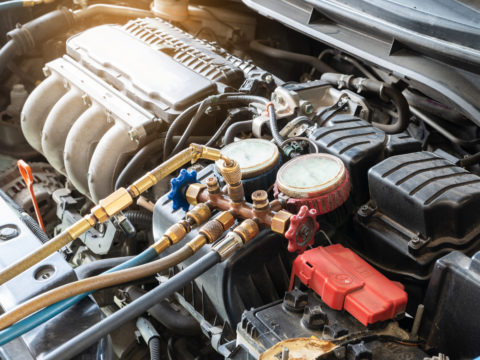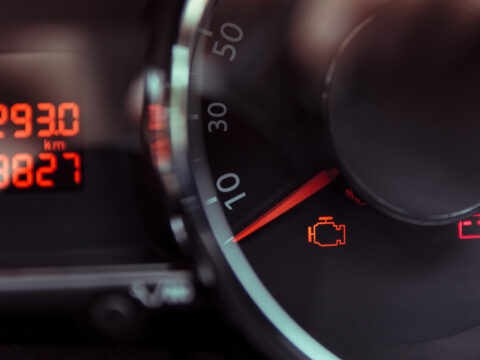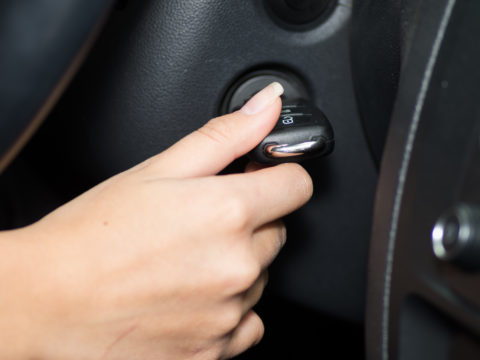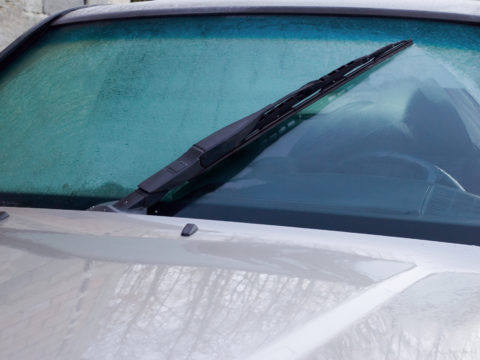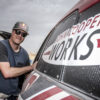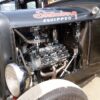You shouldn’t wait long before you get your car checked since it might lead to other complications. Grinding noises are typically associated with failing hub or wheel bearings when driving at low speeds.
These rotating parts of the car can cause a grinding noise, signaling that you should have your vehicle checked by an expert as soon as possible.

What Causes Grinding Noise When Driving at Low Speeds?
When driving your car around, you’re often intimately familiar with the engine’s roar and even how the brakes apply to bring you to a halt.
However, when you suddenly hear grinding noises (or any other noise for that matter) it’s a clear indication that something is wrong.
When the car makes grinding noises when you drive slowly or slow down, there are a couple of reasons why this might occur.
Bad Wheel Bearings
Wheel bearings keep your wheels in position and ensure they roll smoothly. Bearings are also there to ensure no friction when the wheels are in motion.
Friction causes wear and tear. Faulty bearings will allow for friction between components, creating a grinding noise when driving at low speeds.
If the problem isn’t fixed in time, it can cause further wear to individual components.
If your wheel bearings are worn out, have them replaced ASAP. Your mechanic will diagnose whether greasing will help to prevent the grinding noise. But replacing the bearings is a long-term solution.
Worn Brake Rotors
You may also experience the grinding noise when you slow down if your car has worn brake rotors. The same happens when you hit the brakes. It’s common for breaks to wear out, and it’s typically advisable to replace them more often.
Brake rotors in good condition have a smooth surface. Once they start to wear out, they develop fine lines running horizontally.
Most car owners think replacing the brake pads is the best way to fix the issue. However, new brake pads won’t solve the problem since it won’t take long before you hear the grinding noise again.
Worn Brake Pads
If your rotors are still in good condition, the noise could result from worn brake pads. Replacing the brake pads can stop these noises. But it’s worth noting that there are poor-quality brake pads that might even make noise shortly after replacing them.
Ensure you buy quality brake pads from a reputable manufacturer or retail store.
Loose Engine Belt
A loose engine belt will also affect your car’s performance, and you’re likely to hear grinding noises from your vehicle when driving slowly. If the belt is an issue, you may hear the noise when driving under 20 mph.
When the engine belt fails to hold the pulleys in the correct position, the pulleys will make noise.
Failing Transmission
Having a failing transmission is the worst thing that can happen to any car owner. Apart from hearing grinding noises when driving, with a failing transmission, you’ll notice your car vibrating, shaking, or having rough gear changes.
The grinding sounds could occur because you’re running low on transmission fluid, or the gears could be failing. Damaged low gears often make the car grinding noises when slowing down.

Bad CV Joints
Worn-out CV joints can cause a grinding noise when negotiating tight corners at low speeds. If this goes unchecked, the CV joint may fail, leaving your car stalled.
CV joint issue is common, especially in old cars. If you have a second-hand car, these components should be replaced because they keep your car comfortable and stable.
Lack of Lubrication
Some components of your braking system should be lubricated. For instance, the outer part of the brake pads should be lubricated using a caliper lube.
When these components are poorly lubricated, they grind against each other, causing the grinding noise.
What To Do When You Have a Low-Speed Grinding Noise
When you hear a grinding noise under your vehicle and are not sure what might be causing the noise, here’s what you should do.
You need to diagnose whether the grinding noise is coming from. Determine the noise source when driving at low speeds and when turning. Check whether the noise comes from the front or rear side.
Replace Worn-Out Bearing
You’ll have to replace your wheel bearings if there’s an issue with them. The bearing can affect the handling and steering and cause uneven wear and tire of your tires.
Worn-out bearings can also affect your wheel hubs and the CV joints.
Replace Brake Rotors
Since worn-out brake rotors can’t be repaired, the only solution is to replace them.
Replace the Engine Belt and Pulley
If a loose engine belt or pulley causes the grinding noise, consider replacing them.
Replace The CV Joints
If the grinding noise occurs when you make tight turns at low speeds, you must replace the CV joints. In some cases, if you notice the grinding early on, greasing will help to stop the noise.
Evaluate Your Transmission
If your bearings, brakes, and CV joints are in mint condition, you should have your transmission checked by an expert.
Transmission repairs and replacements are costly, so you should expect to spend a few hundred dollars to correct issues with your transmission.
Is It Safe To Drive With a Grinding Noise?
It’s not advisable to drive around with a grinding noise. The earlier you get your car fixed, the better. Driving with noise only worsens the situation and will increase the cost of repair in the long run.
If you don’t have the money to fix your car right away, you shouldn’t drive it to prevent compounding the mechanical issues.
Talk to your mechanic about the noise early since they will help you diagnose the problem’s root cause. You might be lucky if the issue can be fixed with minimal repairs.
Avoid causing more damage to your car’s components just because you’re unsure where the grinding noise is coming from. Your mechanic should be a phone call away to help you make the right decision.

